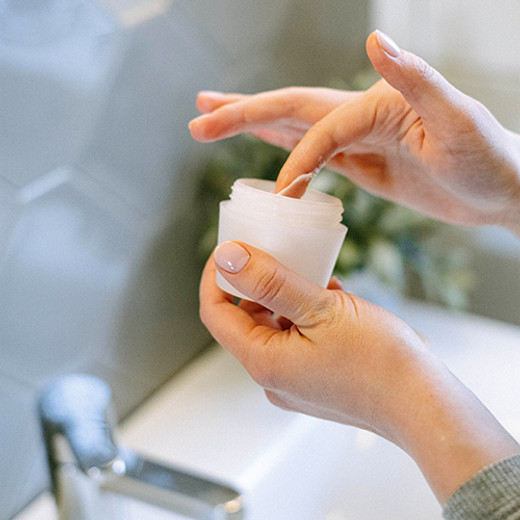Do I Really Need A Separate Day & Night Cream?
Posted by Ellie Swain on Dec 14th 2020
We all know that moisturizing is essential for healthy and hydrated skin. There are a plethora of different types of moisturizers on the market, from heavy, thick creams to lightweight lotions packed with SPF to protect our skin from the sun. We expect our moisturizers to do a lot for us, including brightening, mattifying, plumping, smoothing, and tightening the skin.
But while we expect a lot from our creams, when it comes to choosing two different moisturizers for our daytime and evening skincare routines, it’s easy to hesitate. Do we really need to shell out on two separate creams, one for a different time of day? Or is it possible to manage with one?
We’re here to spill the beans once and for all.
Why Do I Need a Daytime Moisturizer?
Daytime moisturizers should contain SPF to protect you from the sun’s aggressive UV rays when you’re walking outside. Yes, they should even be worn on wintery, blustery days when the sky is overcast. Day creams also tend to be more lightweight, so you can apply makeup on top of it without feeling and looking greasy or shiny.
By wearing a daytime moisturizer with SPF, you can slow down the development of fine lines and wrinkles. It also helps to prevent dark spots and skin discoloration. Even more importantly, an SPF cream helps to protect you against skin cancer.
A day cream also avoids using active ingredients such as retinol, glycolic acid, or alpha hydroxy acids. While these ingredients work wonders on your skin as you snooze, they can cause photosensitivity during the day.
We love NeoCutis’s Micro Day SPF 30 cream. This gentle yet powerful day cream delivers four benefits in one application: skin revitalization, broad-spectrum UVA and UVB protection, antioxidant care, and lasting hydration.
Why Do I Need a Nighttime Moisturizer?
Night creams are typically richer and more nourishing than day creams, working their magic on your skin while you’re tucked up warm in bed. Plus, there isn’t a need for them to contain SPF.
As mentioned, nighttime moisturizers may include active ingredients like retinoids or glycolic acid, which would make your skin sensitive to the sun if you wore them during the day.
When you’re fast asleep, your skin works hard to repair, so it’s the best time to apply deeply nourishing creams to maintain healthy skin and reduce the signs of aging skin. As the nighttime is when your skin does all the heavy lifting, it’s best to opt for intense creams that focus on moisture and recovery. Because of this, night creams are heavier than day creams and have a more significant concentration of ingredients.
The Dermalogica Sound Sleep Cocoon Cream transforms your complexion overnight for glowing, healthy skin by morning. The formula contains tamarind seed extract, which creates a creamy cocoon of comfort for smooth, soft, and hydrated skin. Encapsulated French lavender essential oil works separately to encourage a deep and restful night’s sleep, so your skin has the chance to repair as you slumber.
Other essential ingredients include Persian silk tree extract, which reduces skin fatigue signs and restores vitality, while Wu-Zhu-Yu extract makes skin more radiant looking by morning.
Do You Need Both?
You’ve heard the benefits of using both a day and night cream. But the question may remain on your lips – do you really need both creams? Or can you work with one multi-purpose product?
Of course, it’s suggested that you use two different creams. If you use separate products for day and night, you can reap the benefits of different ingredients. For example, you may opt for a moisturizer packed full of antioxidants for the day and a formula with retinoids at night.
If you’re adamant about having just one moisturizer, be sure to choose a formula with SPF for both day and night. While there’s no harm in using SPF at night, you risk skin damage if you don’t wear it during the day.
Plus, if you use a night cream during the day, your skin will feel greasy and shiny, which isn’t the best look. As well as this, if you wear makeup, it will be harder to apply over sticky night cream.
There are also a few all-purpose creams on the market, but they’re rarer to find. These formulas aim to deliver the benefits of both day and night creams, keeping your skin moisturized, feeding the skin with anti-aging components, protecting your skin from the sun, and more.
Do you want more skincare advice? Learn more about BHA exfoliants and why you should use one.

